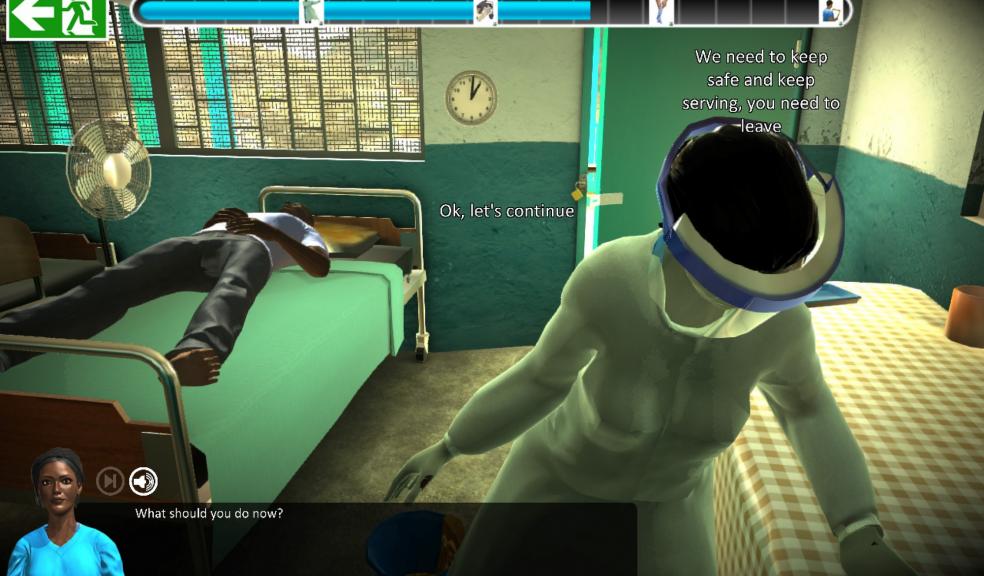
Plymouth's role in Sierra Leone Ebola-free status
Sierra Leone officially declared Ebola-free – partly thanks to a team of medical education researchers and virtual learning technicians from Plymouth.
The team, made up of clinicians, academics and programmers from Plymouth University Peninsula Schools of Medicine and Dentistry (PUPSMD) and Plymouth Hospitals NHS Trust, has worked with Masanga Hospital in Sierra Leone and the Masanga Mentor Ebola Initiative to trial, develop and implement virtual learning packages for local health care workers and communities using computer gaming technology.
The technology uses both 2D and 3D simulation to teach local health carers and members of the public how to care for sick members of their families, how to clean up and disinfect, and how to protect themselves, their families and their communities.
Playing a lead role in the development of the virtual learning packages has been the award-winning Technology-Enhanced Learning for Medicine and Dentistry (TELMeD) team at Plymouth University. The team has used innovations and techniques in the Masanga project which are also used to train medical, dental, nursing and physician associate students at Plymouth University.
Dr Arunangsu Chatterjee, Director of Technology Enhanced Learning at PUPSMD said: “This project demonstrates the power of modern educational technology for rapid response in the global health context and also provides the flexibility to repurpose it for infection prevention and control education and training here in Plymouth and potentially across the EU.”
The outcome of various trials has been the development of a digital toolkit designed to provide a virtual classroom. Using evidence from the field of medical education, ebuddi© is transforming access to infection prevention and control skills for health care workers in Sierra Leone and elsewhere in West Africa.
The skills taught via ebuddi© not only protect both the health worker and the patient, but also provide safety for families and communities – in turn improving the resilience of local health systems.
Dr Tom Gale, Clinical Associate Professor in Clinical Skills at Plymouth University Peninsula Schools of Medicine and Dentistry said: “We are immensely proud that the innovations we have developed here in Plymouth have gone some way to helping Sierra Leone achieve Ebola-free status. The great thing is that virtual education packages such as ebuddi© are exciting training tools with immense potential. Ebola outbreaks should not occur if hospitals and health facilities have effective infection prevention and control measures in place - ebuddi© will help them to achieve this both now and in the future.”
Earlier this year PUPSMD was successful with the award of £136,000 from THET to expand this training across the country, build a dedicated triage and isolation facility and help to establish Masanga Hospital as a Centre of Educational Excellence in the region.
The news of Plymouth’s role in helping to train health care workers on the ground in Sierra Leone comes soon after the announcement of an expert review from Plymouth University which was the first to investigate the use of self-disseminating vaccines as a means to vaccinate wild animal populations against emerging infectious diseases such as Ebola – thereby ‘cutting them off’ at the animal source before they enter human populations.












